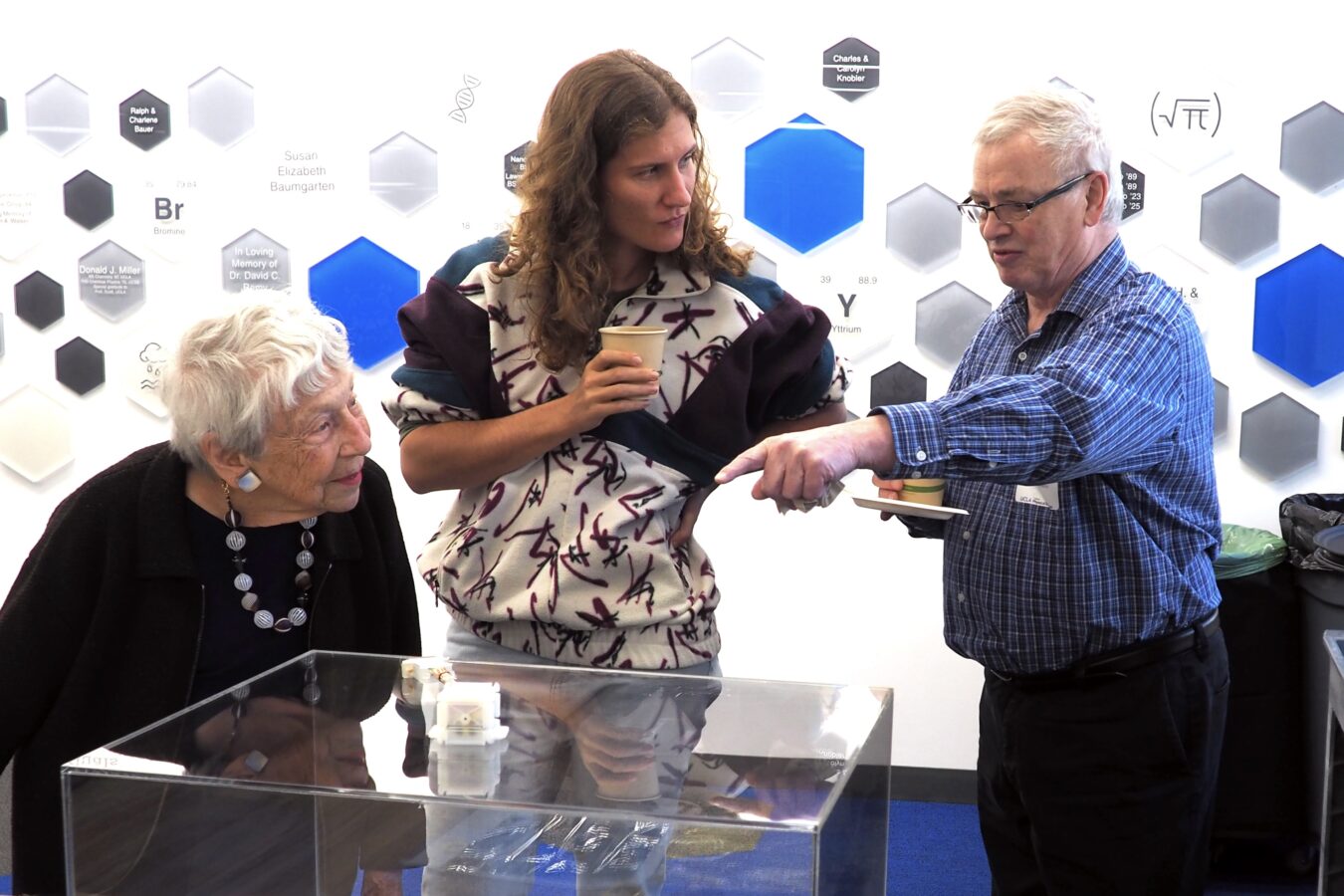The UCLA SPACE Institute and the Department of Chemistry and Biochemistry recently hosted a groundbreaking workshop, “Chemistry and Materials for Space Science and Technology.” The event brought together scientists, students, and industry leaders from across the country to discuss the growing and important role that chemistry plays in space science and exploration.
“Chemistry is a fundamental part of space because all of you were once inside a star,” said professor Ranga Ram Chary, Executive Director of the SPACE Institute. Chary highlighted the workshop’s dual focus: understanding the chemistry of space environments and developing novel materials crucial for advanced space missions.
“Space is having its moment, and it’s thrilling to see how chemistry is helping to shape that future.”
Professors Jacob Bortnik
The event featured three keynote speakers who shared insights from their respective fields. Tom Peng of the Air Force Research Laboratory discussed the evolving space landscape, emphasizing the importance of secure access to space amidst growing commercialization. “We are working on new capabilities, from satellite communications to resilient spacecraft designs, to ensure the U.S. thrives in the future space ecosystem,” he said.
UCLA chemistry alumna Donna Speckman from the Aerospace Corporation highlighted the critical role of materials science in ensuring spacecraft durability. From advanced solar arrays to innovative propulsion systems, Speckman illustrated the breadth of chemistry’s impact. “Materials that look great on Earth can crumble under space radiation,” she said. “We need chemists, now more than ever, to help us develop a new generation of tools and materials for this new space economy.”
Tomče Runčevski of Southern Methodist University presented research on Saturn’s moon Titan. His team’s work on reproducing Titan’s conditions in the lab has shed light on the moon’s geology and its potential for past lakes on its surface. “Our discovery of a new phase of benzene and acetonitrile is a reminder of how much we still don’t know, even about the simplest organic molecules,” he noted.
The workshop underscored the importance of collaboration between chemistry and space science, with applications ranging from future space missions to Earth-bound industries. “Space is having its moment,” said Jacob Bortnik, chair of UCLA’s Atmospheric and Oceanic Sciences Department and founding faculty director of the SPACE Institute. “And it’s thrilling to see how chemistry is helping to shape that future.”
 The event included demonstrations from several labs showing the important role chemistry is playing across the physical sciences in advancing space technology (PHOTO CREDIT: Penny Jennings)
The event included demonstrations from several labs showing the important role chemistry is playing across the physical sciences in advancing space technology (PHOTO CREDIT: Penny Jennings)